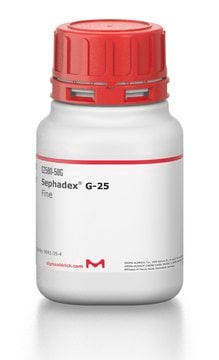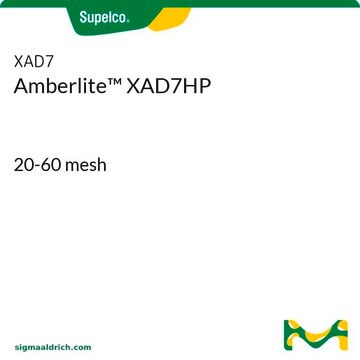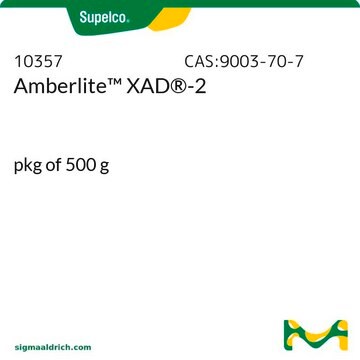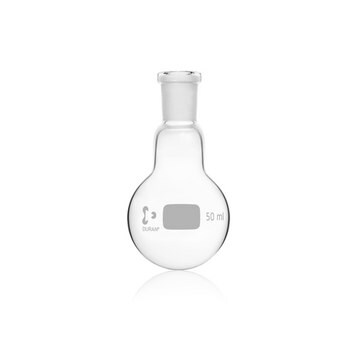LH20100
Sephadex® LH-20 Size Exclusion Resin
140-550 mesh
Synonym(s):
Lipophilic Sephadex®
About This Item
Recommended Products
product name
Sephadex® LH-20,
form
slurry
technique(s)
LPLC: suitable
matrix
Agarose
matrix active group
polymer
swelling
1 g swells to 4 mL (water, methanol)
bead size
25-100 μm
operating pH range
2-13
separation technique
size exclusion (SEC)
storage temp.
room temp
Related Categories
Application
Sephadex® LH-20 has been used to isolate bioactive polyphenolic content from blackberry genotypes and tryptophan from the aqueous extract of lotus rhizomes.
Legal Information
replaced by
Storage Class Code
11 - Combustible Solids
WGK
WGK 3
Flash Point(F)
Not applicable
Flash Point(C)
Not applicable
Personal Protective Equipment
Certificates of Analysis (COA)
Search for Certificates of Analysis (COA) by entering the products Lot/Batch Number. Lot and Batch Numbers can be found on a product’s label following the words ‘Lot’ or ‘Batch’.
Already Own This Product?
Find documentation for the products that you have recently purchased in the Document Library.
Customers Also Viewed
Protocols
Separation using Sephadex LH-20 column for Size Exclusion Chromatography media in polysaccharide network from Cytiva.
Our team of scientists has experience in all areas of research including Life Science, Material Science, Chemical Synthesis, Chromatography, Analytical and many others.
Contact Technical Service











